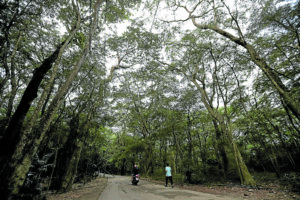Filipinos are willing to comply with COVID-19 contact-tracing efforts which are crucial to mitigate the spread of the virus, results of the latest Social Weather Stations (SWS) survey show.
The survey, conducted from Sept. 17 to Sept. 20 through mobile phone and computer-assisted telephone interviews, found that 97 percent of adult Filipinos would self-quarantine if they came in contact with someone who tested positive for coronavirus while 96 percent were willing to give a list of the people they have interacted with.
Of the 1,249 adult respondents, 93 percent would give access to their cell-phone data to review their location and 87 percent would volunteer to be tested weekly for virus tracking.
The proportions of Filipinos willing to cooperate are higher than that of Americans, based on the same survey conducted by Axios/Ipsos in the United States from May 15 to May 18.
Comparable US survey
The US survey found that 84 percent were likely to self-quarantine if they came in contact with a coronavirus-positive individual, 76 percent were likely to give a list of the people they’ve come in contact with, 59 percent were likely to volunteer for weekly testing and 56 percent were likely to give access to cell-phone location data.
The SWS used a sampling margin of error of plus-or-minus 3 percent for national percentages, plus-or-minus 6 percent for Metro Manila, the Visayas and Mindanao, and plus-or-minus 5 percent for Luzon outside Metro Manila.
In all areas, most Filipinos are willing to comply with the contact-tracing efforts with the Visayas having the highest percentage of those willing to self-quarantine at 98 percent. It was followed by Luzon outside Metro Manila and Mindanao at both 97 percent, and Metro Manila at 93 percent.
Those willing to provide a list of everyone they interacted with were highest in Luzon outside Metro Manila and the Visayas at 97 percent each, followed by Mindanao at 96 percent, and Metro Manila at 94 percent.
—Inquirer Research


